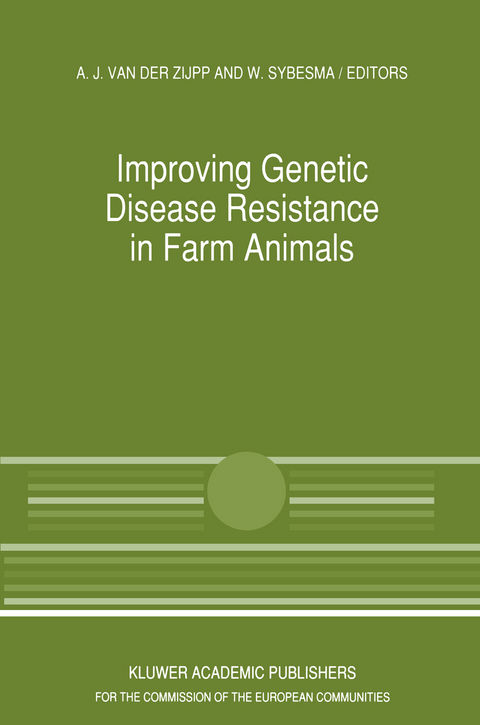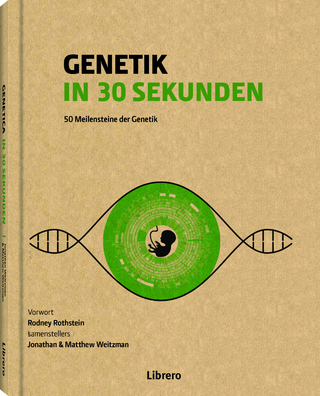
Improving Genetic Disease Resistance in Farm Animals
Springer (Verlag)
978-94-010-6967-0 (ISBN)
This publication contains the proceedings of a seminar held in Brussels on November 8-9, 1988. The title of the seminar was "Reducing the costs of disease by improving resistance through genetics". The seminar was held as an activity of the Community Programme for the Coordination of Agricultural Research, 1984-1988. Costs of disease depend on losses caused by morbidity, mortality and production decreases and on the costs of preventive measures including vaccination and medication. Production losses often contribute a major portion to the total costs. To reduce costs of disease preventive measures like vaccination, preventive medication and hygienic procedures are applied. Genetic resistance is an attractive preventive measure because of its consistent nature in the next generations, because it precludes veterinary services and because there are no side-effects. Constraints are the long term investment, relatively slow progress per generation (in combination with production traits) and the considerable lack of knowledge about inheritance of resistance mechanisms in farm animals.
Table of Contensts.- Session 1: General aspects Chairperson: A.J. van der Zijpp.- Introduction:.- Biological significance of the MHC.- Session 2: MHC serology and immunology Chairperson: M. Simonsen.- The characterisation and function of the bovine MHC:.- Current status of SLA class I and II serology:.- ELA (Equine Lymphocyte Alloantigens) serology and genetics:.- The chicken MHC and its importance:.- Some evidence for the presence of an MHC analogue in fish:.- Session 3: MHC polymorphism by protein chemistry and DNA techniques Chairperson: R.L. Spooner.- BoLa polymorphism, biochemical analysis at the product level:.- Comparison of BoLa class I and class II typing methods and their application to MHC function studies:.- The molecular genetics of the SLA complex:.- Molecular anatomy of the chicken Major Histocompatibility B complex:.- Session 4: MHC and disease associations Chairpersons: M. Vaiman and S. Lazary.- Possible influence of the Caprine Leucocyte Antigen (CLA) system on development of Caprine Arthritis Encephalitis (CAE) in family and population studies:.- Statistical aspects of cattle MHC (BOLA) and disease associations exemplified by an investigation of subclinical mastitis:.- Possible effects of the pig SLA complex on physiological performances:.- ELA disease associations:.- Session 5: Immune response markers and disease resistance Chairperson: E. Andresen.- An immune competence profile in swine:.- The genetics of parasite resisrance in sheep:.- The Biozzi model applied to the chicken:.- Genetic resistance to bovine mastitis:.- Session 6: General discussion Chairpersons: W. Sybesma and A.J. van der Zijpp.- General Discussions and Conclusions.
| Reihe/Serie | Current Topics in Veterinary Medicine ; 52 |
|---|---|
| Zusatzinfo | 192 p. |
| Verlagsort | Dordrecht |
| Sprache | englisch |
| Maße | 155 x 235 mm |
| Themenwelt | Naturwissenschaften ► Biologie ► Genetik / Molekularbiologie |
| Naturwissenschaften ► Biologie ► Zoologie | |
| Veterinärmedizin | |
| ISBN-10 | 94-010-6967-0 / 9401069670 |
| ISBN-13 | 978-94-010-6967-0 / 9789401069670 |
| Zustand | Neuware |
| Haben Sie eine Frage zum Produkt? |
aus dem Bereich


